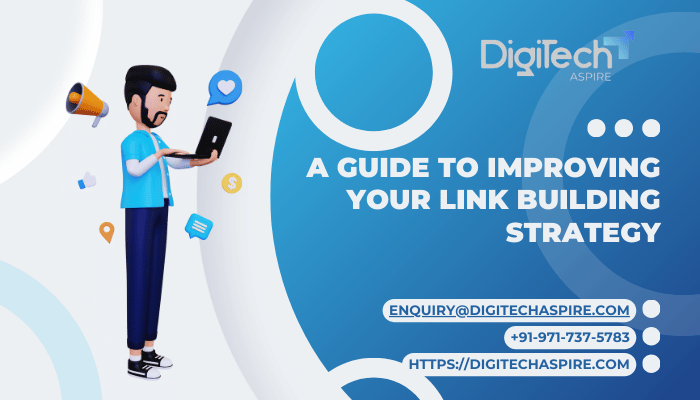Link building is one of the best ways to increase your website’s organic traffic and boost its SEO. It’s important to get the right links, not just as many as you can. This comprehensive guide will help you improve your linking strategy.
Understanding the basics of link-building
It’s important to know why link-building matters before diving into the tactics. Google uses links as a ranking factor because they are a vote of confidence between sites. High-quality backlinks can boost your website’s authority and search engine ranking.
Prioritize Quality Over Quantity
Not all links have the same value. Few high-quality, authoritative links can be more valuable than many low-quality ones. Search for links on sites that:
- Relevant to Your Niche
- Trusted and authoritative
- High domain authority (DA), and high page authority (PA).
Create link-building worthy content
Links are naturally attracted to high-quality and valuable content. Content that is likely to attract links includes:
- Guides and How-tos Comprehensive resources on specific subjects.
- Original data and research: Surveys, studies, and data analyses that provide unique insight.
- Infographics: A visually appealing and easily shared content.
- Lists and roundups: Curated lists or resources of tools, experts, or resources in your industry.
- Case Studies: Explanations of specific results.
Guest Blogging Link-Building
Link building is easy when you write guest posts on blogs that are reputable in your field. Make sure your guest posts provide real value to the audience of the host blog. Follow the guidelines of your host blog and look for sites that have a high domain authority.
Build Relationships
Link-building can be achieved by networking and building relationships. Engage others in your niche via social media, forums and industry events. Offer to work together on interviews, content or joint projects.
Utilize Broken Link-Building
Identify any broken links and substitute them with your content. You can identify broken links using tools like Ahrefs or Screaming Frog. If you discover a fractured hyperlink that is relevant to your content, send a polite message suggesting your site as a possible replacement.
Local SEO: How to leverage it
If you are a local company, make sure your website is listed on local directories. Local citations are a great way to get backlinks. Make sure your information is consistent in all directories.
Use Social Media
Social media links, which are usually no-follow and do not pass SEO value directly to your website, can help increase the visibility of your content and lead to more organic backlinks. Interact with your audience and distribute your content on social platforms to establish a community around your brand.
Monitor your Backlink profile
Regularly check your backlink profile using tools like Ahrefs or Moz. Search for lost links, new backlinks, and potentially harmful ones. Remove any low-quality or spammy links that may harm your site’s reputation.
Stay abreast of the latest SEO trends
SEO is always changing, so it is important to stay informed of the latest trends and practices. Attend industry conferences and webinars, read reputable SEO blogs and keep up with the latest trends.
Conclusion
Effective link-building requires a strategic approach focused on quality, relevance, and relationship-building. You can build a strong link-building campaign by creating useful content, engaging your community and staying current with SEO trends.
By incorporating these tactics, you can enhance your link-building endeavours and attain superior SEO outcomes. If you need more specific advice or assistance, feel free to ask!

